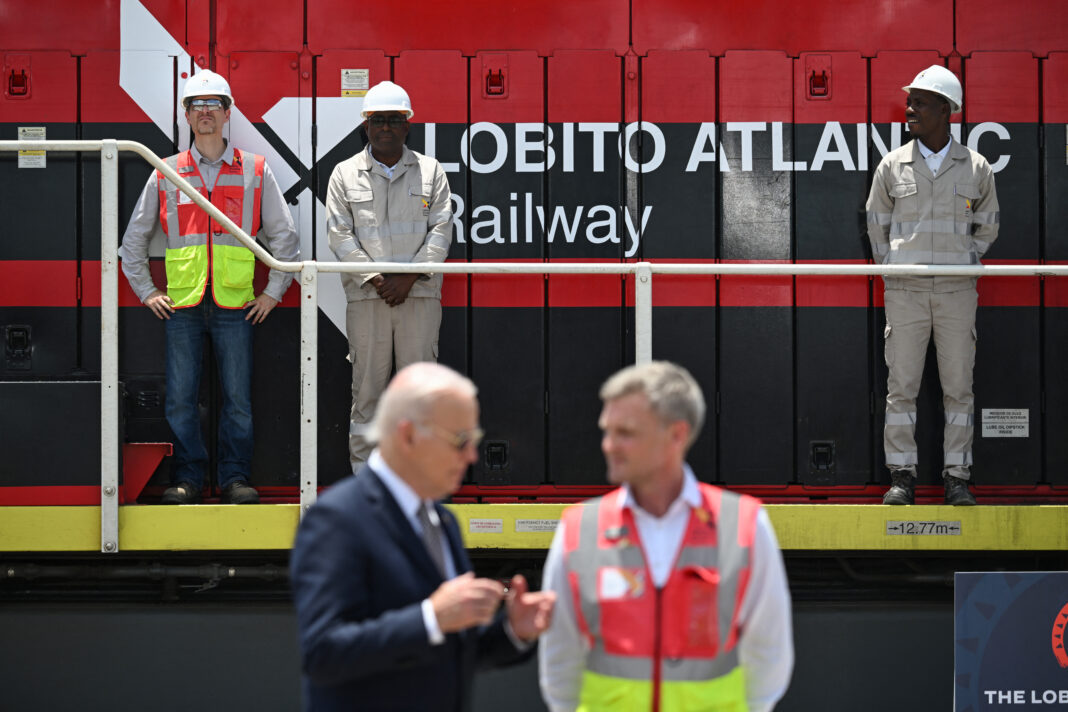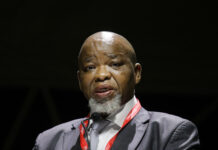
Outside South Africa, billions of dollars are being invested in upgrading and expanding rail networks to facilitate transport of minerals such as copper, cobalt, tantalum and coal from landlocked mines in the Democratic Republic of the Congo (DRC), Botswana and Zambia to ports.
These networks include the 1,500km Trans-Kalahari Railway, and another in feasibility study stage – the Tanzania-Zambia Railway Authority (TAZARA), a planned $1.4bn investment by the China Civil Engineering Construction Corporation to upgrade the existing 1,860km railway that links mines in Zambia to the Port of Dar es Salaam.
But the most advanced of all is the 1,300km Lobito Corridor from Angola’s Lobito Port to mines in the DRC and Zambia. Lobito has attracted $10bn in investment pledges from the US, EU, African Development Bank and private sector consortia.
The Lobito Corridor has already been used by Ivanhoe Mines to transport copper concentrate to Lobito from its Kamoa-Kakula complex in the DRC. Transporting concentrate by rail instead of road cuts the journey time to about eight days, compared with 25 days by road to Durban.
Andrew Shaw, chief strategy and planning officer at Transnet, said volumes on the north-south rail corridor from Lubumbashi to Durban have fallen off over the past 15 years, for various reasons, including more competition from east-west road traffic to Dar es Salaam and other destinations. But a substantial volume of copper was still coming by road to City Deep and being containerised for export through the Port of Durban. Durban offered an advantage for copper exporters in that containerised copper can be shipped in smaller quantities via scheduled vessels by different customers to destinations around the world, he said.
DRIVING DEVELOPMENT
“Both the Lobito and TAZARA railway projects highlight the increasing interest in African critical mineral supply chains,” the Organisation for Economic Co-operation and Development (OECD) said in an April 2025 draft report on the OECD Emerging Markets Forum.
In 2023, the US and EU signed an MOU with African finance agencies to support the upgrade of the old Benguela Railway, on which the Chinese did some work between 2006 and 2014 in a $2bn rail-for-oil programme. Although the MOU was signed under the administration of President Donald Trump’s predecessor, in April 2025 US ambassador to Angola James Story said the US was not moving away from the project.
In fact, the US has become more involved in the region. On June 27, representatives of the DRC and Rwanda signed the Critical Minerals for Security and Peace Deal in Washington, which was brokered by the US. The US will get “a lot of mineral rights” from the DRC as part of the agreement, Trump told reporters at the event.
Trump is seeking to counteract China’s influence in critical minerals and specifically secure supply for the US.
US INTERESTS ARE NARROW
According to Claude de Baissac, founder and CEO of Eunomix, which advises corporates on risks in Africa, delegates at this year’s London Indaba expressed hope that Africa’s mineral wealth was again attracting attention and investment. De Baissac was less optimistic. “Africa, Latin America and parts of Asia are where the competition between the US and China for critical minerals is playing out. Africa has 30% of the world’s known mineral endowment but the continent is underexplored.
“Despite some disparaging remarks about Africa, President Trump has not written Africa out of the picture.
“He is not walking away from the Lobito Corridor and has spent time and capital on facilitating the DRC-Rwanda peace talks.” said De Baissac.
“However, his involvement is purely transactional. He looks at Africa through a geopolitical lens. He withdrew support for USAID because he did not understand the organisation’s role in development and humanitarian assistance. But there is no question of abandoning the Lobito Corridor, because it is singularly focused on securing bulk minerals supply to the US.”
De Baissac said another scramble for Africa’s resources by the superpowers was unlikely to advance democracy and broader economic development on the continent.
“The US is unlikely to be a force for positive change because it is motivated by self-interest, and there is a significant risk that US involvement will benefit only itself and a few corporates,” he said.



